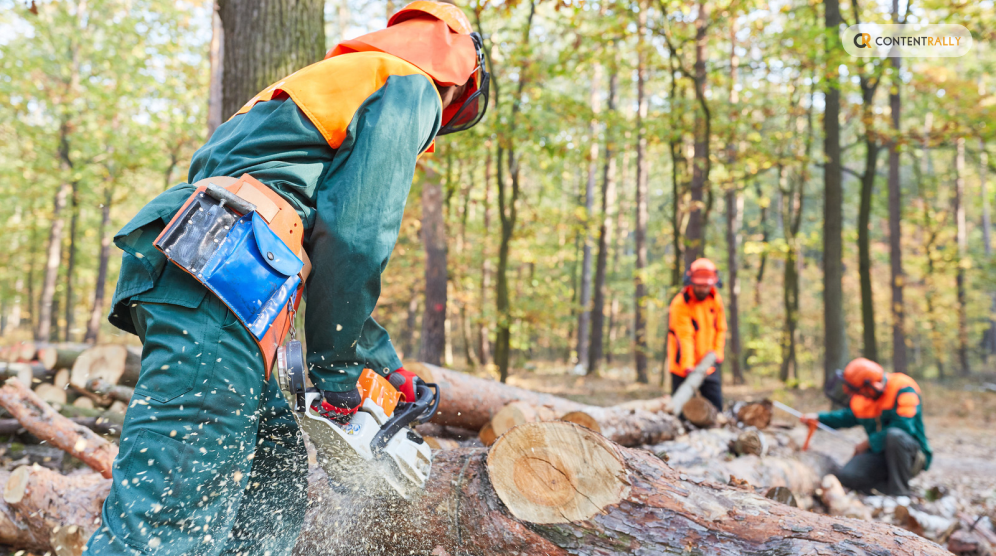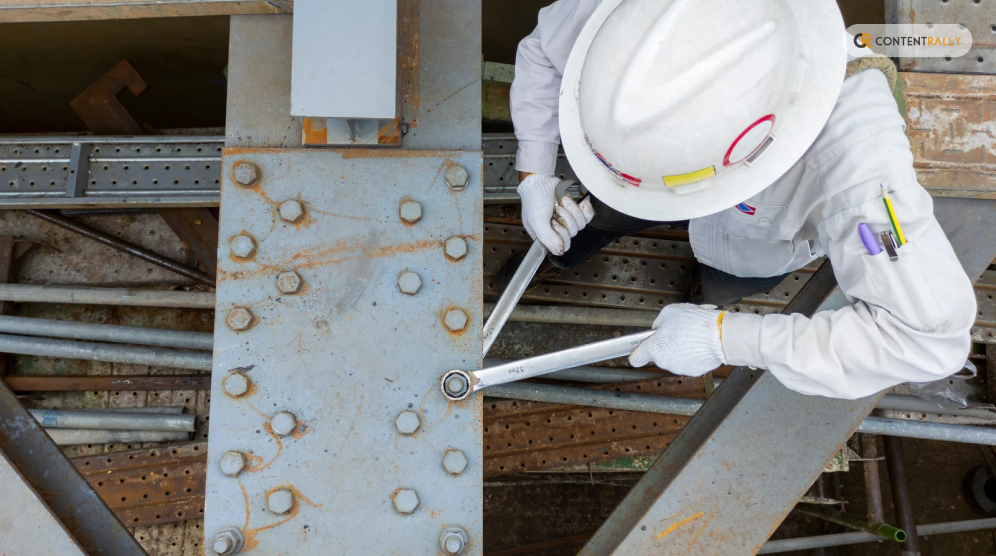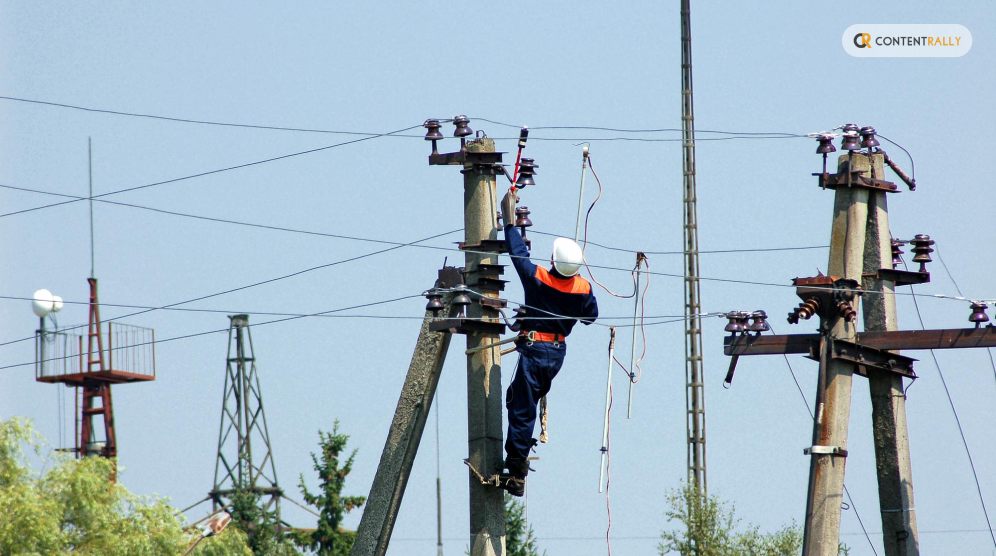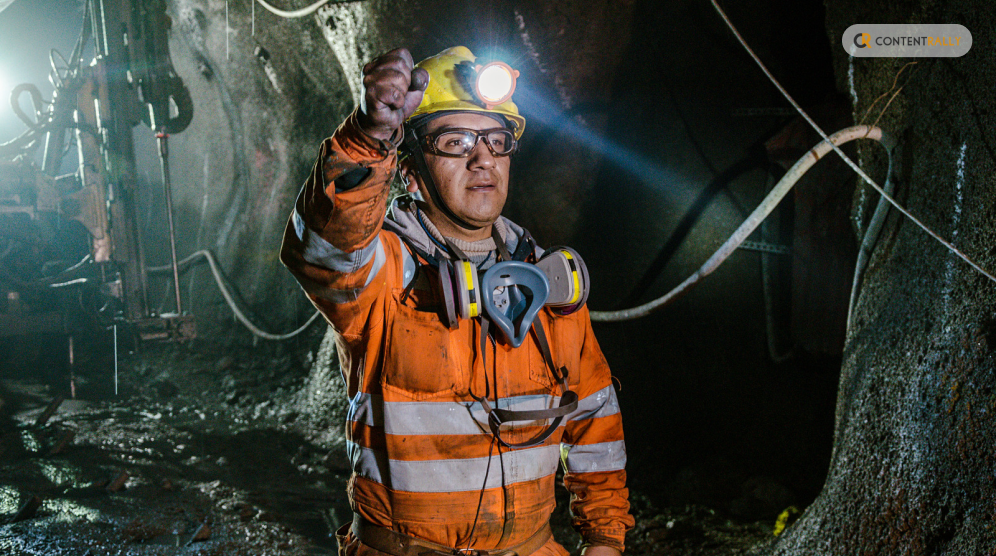In a world where most of us complain about having 9-to-5 jobs, there are times when we forget how difficult life can be for others who probably have some of the most dangerous jobs in the world.
Last week, I went to a cafe with my friends, and all we were doing was complaining about our jobs, the minimal money, the fright of getting laid off, and the exhaustion. However, that is when Samantha said something like, “But we are privileged. At least we do not have to work as hard as a farmer under the sun!”
And she is right! We are fortunate.
That is when I started thinking about the people with the most dangerous jobs in the world. I started searching for the riskiest jobs and how people dealt with them.
Want to know about them? I have you covered! So, keep on reading till the end to learn more…
Most Dangerous Jobs in the World in 2024!
Miners, underwater welders, oilfield workers, police officers, commercial fishermen— the list can go on when we start talking about the most dangerous jobs in the world. Technically speaking, if I actually sit down and list all of them, the list will be endless.
That is the reason why I have listed the twelve most dangerous jobs. So, without further ado, let us get started with this list:
1. Commercial Fishermen

Commercial fishing is like a high-stakes poker game with Mother Nature. These brave souls battle wild waves, slippery decks, and unpredictable weather. Imagine doing a tango with a storm—it’s no picnic.
Think massive nets, winches, and sharp hooks. Commercial fishermen wrangle these tools while dancing on a moving boat. One wrong move, and it’s trouble.
Ever heard of bycatch? It’s when unintended creatures (like dolphins or turtles) get caught in the nets. Despite efforts to reduce it, bycatch remains a serious issue.
When it comes to commercial fishing, you can easily forget 9-to-5. These fishermen work grueling shifts, often in the dead of night. Sleep-deprived and battling fatigue, they’re like nocturnal warriors.
Out at sea, these fishermen are on their own. Help isn’t a phone call away. It’s just them, the boat, and the vast ocean.
2. Logging Workers

Logging is like a wild adventure in the forest but with serious risks. These workers deal with heavy machinery. Loggers handle chainsaws and logging machines, dealing with massive weights and unstoppable tree momentum.
They work on uneven, rough ground and treacherous terrain, where a wrong step can lead to disaster.
That is not all! Rain, snow, lightning, and extreme cold— nature throws curveballs at them as they have to work in literally all weather conditions.
And guess what, there are times when these workers have to stay away from home for extended periods of time, working in remote locations. Sometimes they’re far from help, making emergencies scarier.
3. Aircraft Pilots and Flight Engineers

Aircraft pilots and flight engineers are challenging and risky professions. While passengers enjoy safe air travel, these professionals face unique hazards.
Pilots navigate the skies, dealing with equipment failures, unpredictable weather, and potential mid-air collisions.
Flight engineers manage aircraft systems during flight. Long hours and irregular schedules can lead to fatigue and impaired judgment.
Their fatality rate is approximately 58.4 deaths per 100,000 workers. Soaring through the clouds isn’t always smooth sailing!
4. Roofers

The job of a roofer is to install asphalt, shingles, metal, or several other materials required to ensure that the roof of a house is waterproof. However, this is a low stress job for which you do not need a degree.
Roofers spend their days perched high above the ground. One wrong step can lead to a dangerous fall.
They handle substances like tar and chemicals, which can harm health. Roofers work with flames and hot asphalt, risking burns and accidents.
Carrying heavy materials like shingles and tools is part of the job, and it strains their bodies. Moreover, they work with saws, nail guns, and other tools that are essential but also pose risks. Additionally, roofers brave rain, wind, and extreme heat. Imagine working on a slippery roof during a storm!
5. Refuse and Recyclable Material Collector

Talk about unsung heroes, and these people will be the first in line. Being a Refuse and Recyclable Material Collector might not seem hazardous at first glance, but it’s actually quite risky, with their fatality rate as high as 44.3 deaths per 100,000 workers.
These workers handle hefty garbage bins and recyclables daily. Lifting and tossing these loads can strain muscles and cause injuries.
The refuse truck itself is a major hazard. Workers jump on and off it, and accidents involving the truck are common. Imagine getting hit by your own workplace!
Refuse collectors are at risk of being struck by passing vehicles. When they stand on the truck or work near traffic, accidents can happen.
Additionally, garbage contains sharp objects, broken glass, and even toxic chemicals. Exposure to these materials poses health risks.
Employers should use safer equipment, like automated side loader trucks, and ensure trucks have alarms. Workers must stay alert and wear high-visibility vests near roads.
6. Structural Iron and Steel Workers

If you have something to thank the structural iron and steelworkers for, you must do it for the cities they built for us. They place and join the steel girders and other essential pieces to make the structural framework of any/all building.
Now, you might be wondering why I am saying that their job is dangerous. Apart from the fact that their fatality rate is about 37.0 deaths per 100,000 workers, let me tell you what makes their jobs risky.
These workers install and connect steel beams for buildings and bridges. Imagine working at dizzying heights, where falls are a constant threat.
Carrying hefty steel components is part of the job. The strain on muscles and joints can lead to injuries. These workers brave rain, wind, and extreme temperatures. Harsh weather conditions increase the danger.
Ironworkers use welding equipment overhead. Burns and eye injuries are real risks. Additionally, safety gear is crucial. Helmets, harnesses, and caution are their lifelines.
7. Delivery and Truck Drivers

A blue-collar job for both women and men, delivery and truck drivers‘ jobs are considered among the most dangerous because they spend a lot of time on the road, which increases their risk of being in an accident.
They often drive in unfamiliar areas, adding to this risk. Additionally, they face threats from criminals who may attack them, steal their cargo, or even their vehicles.
The rise in crimes targeting delivery drivers has made this job increasingly perilous. They also risk injury from other hazards like tripping while delivering packages or being attacked by animals.
8. Farmers, Ranchers, and Other Agricultural Managers

Next on the list of the most dangerous jobs in the world is that of the farmers and agricultural workers. And you might be thinking, “Why so?” Let me tell you why!
You see, Farm life isn’t all sunsets and hayrides. You might not know this, but the fatality rate of people working in agriculture is somewhere around 24.7 deaths per 100,000 workers.
They work with heavy machinery like tractors, which can cause serious injuries. They also deal with unpredictable animals and harsh weather, which can be risky.
Plus, they use harmful chemicals like pesticides and fertilizers. The injury rate for these workers is much higher than the average for all jobs, making it one of the riskiest professions.
9. First-line Supervisors of Construction Trades

First-line supervisors of construction trades have a dangerous job because they work on construction sites, which are places with many risks.
Falling debris, electrical mishaps, and heavy equipment— these are some of the things that they have to work with!
They oversee the work and ensure everyone’s safety, but accidents can happen. Workers might fall from high places, be hit by falling objects, or be injured by machines.
They also have to make quick decisions, which can be stressful and lead to mistakes if they are not careful.
Plus, they work outdoors, so bad weather can make the job even more risky. All these factors make their job one of the most dangerous.
10. Electrical Power-Line Installers and Repairers

This is not supposed to be a surprise, right? We all know how dangerous the work of people working in this field can be. However, just knowing how to be an electrician does not mean that you will be able to do this job.
They work with high-voltage electricity and often at great heights. If they touch the wrong wire or if a tool slips, they could get a severe electric shock or fall.
That is not all! Apart from the technical dangers of the work, they also do physically tough work, which can lead to injuries.
Plus, they have to be outside in all kinds of weather, which can make their job even harder and more risky. One wrong move, and they can literally be dead.
11. Miner

Last but not least, the job of a miner is definitely going to be on this list. Just imagine the site: dark tunnels and headlamps. This is what the office of a miner looks like.
And considering the fact that their fatality rate is nearly 35 deaths per 100,000 workers, it is only natural that a lot of people think twice about people actually becoming one!
They work deep underground where cave-ins can happen. They face toxic air, extreme temperatures, and the risk of explosions.
Miners use heavy machinery in tight spaces, which is risky. The earth can be unpredictable, with sudden tremors causing landslides.
Despite safety improvements, mining still has a high rate of fatal accidents. It’s a tough job with many hazards that can cause both immediate harm and long-term health problems.
Wrapping It Up!
Apart from these, there are several jobs that are among the most dangerous ones in the world. And yes, for most of the people who are actually working in these sectors, it is time that we salute them for their hard work.
However, there is one thing that you must keep in mind. While it is true that these jobs are dangerous, they offer a lot of security. This means even if something unfortunate happens to you, be rest assured that the family will be taken care of.
In case you were searching for the most dangerous jobs in the world, I hope that this blog has been helpful to you.
If you have any other queries related to this, please feel free to let me know. All that you need to do is scroll down until you reach the bottom of the page.
Then, leave your comments and suggestions in the box below. And I will be there to answer them all for you!
Learn More Also:






















